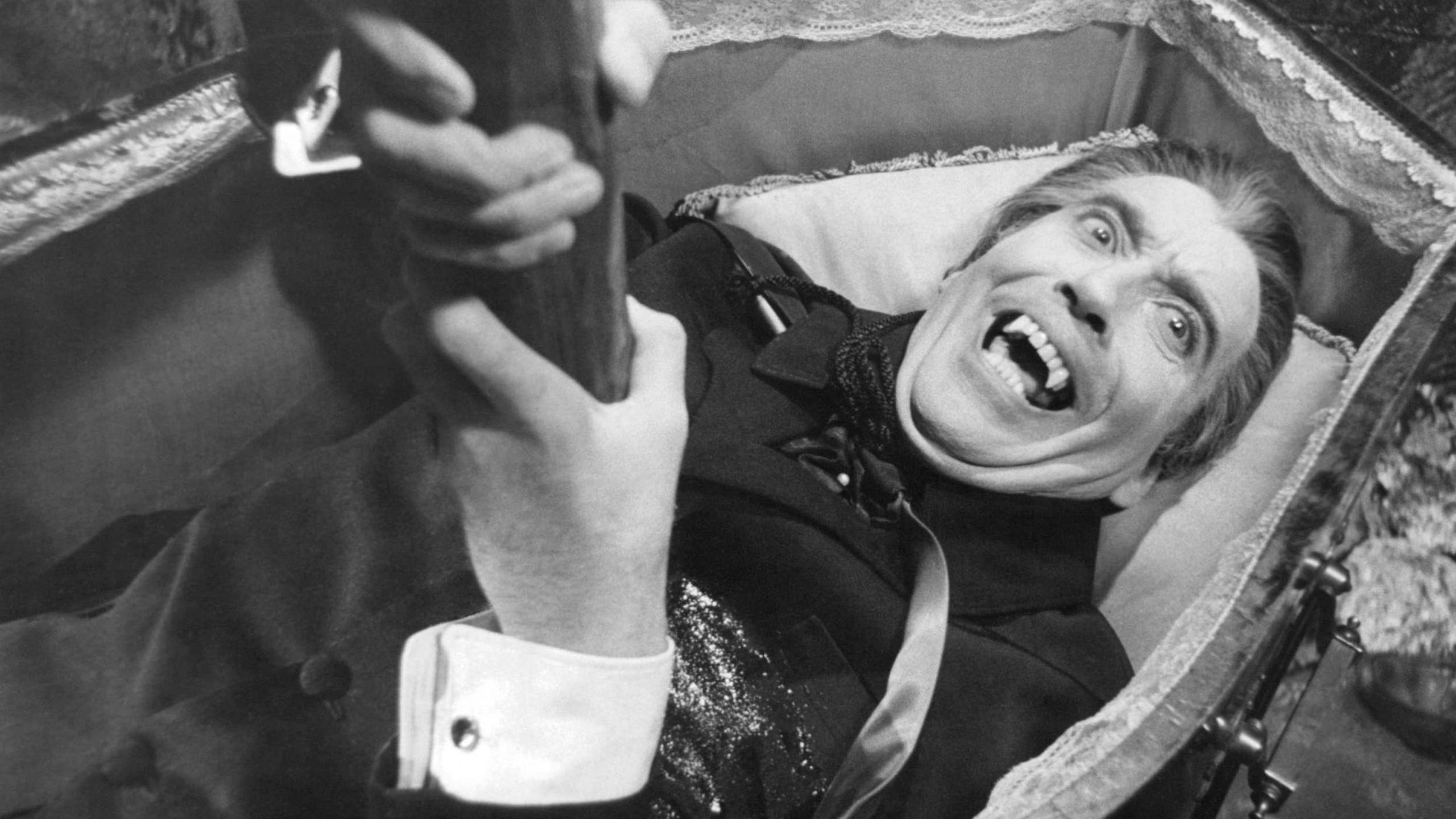More than monsters: Icons of horror films on the definition of the genre

- Published
Dracula, Van Helsing, The Mummy, FrankensteinÔÇÖs Monster - what, or who, makes a good horror movie?
ThatÔÇÖs something the legends of the genre debated over the years, often unsatisfied at the simple classification. Classic stars like Boris Karloff, Peter Cushing, Vincent Price and Christopher Lee were all asked through their careers to define the films they made and explain their appeal. So what did the masters of horror think?
1965: Cliff Michelmore interviews Boris Karloff on horror films
Boris KarloffÔÇÖs eerie portrayal of the Monster in Universal PicturesÔÇÖ Frankenstein in 1931 helped to make him a leading star of the golden age of horror, but it wasnÔÇÖt a label he enjoyed. In a 1965 interview with the ┤¾¤¾┤½├¢, he said: ÔÇ£Well I always rather quarrel with the word ÔÇÿhorrorÔÇÖ because I think the connotation of the word is revulsion. And the idea, the exercise, surely is not to make you lose your breakfast, itÔÇÖs to make your hair stand on end.ÔÇØ
Peter Cushing, who played Van Helsing to Christopher LeeÔÇÖs Dracula in the Hammer Horror films, was of a similar mind. In a 1973 ┤¾¤¾┤½├¢ interview, he said: ÔÇ£Horror to me is a film like the Godfather, or anything to do with war, which is real and can happen, and unfortunately will no doubt happen again sometime. But the films that dear Christopher Lee and I do are really fantasy. And I think fantasy thatÔÇÖs a better adjective to use. I donÔÇÖt object to the term horror, itÔÇÖs just the wrong adjective.ÔÇØ
Classic Horror on ┤¾¤¾┤½├¢ iPlayer
Such films have been a staple of cinema for as a medium. Audiences have always been drawn to the creepy, the morbid, and the supernatural. Many of the early films were adaptations of gothic literature - from 1922ÔÇÖs Nosferatu (based on Bram StokerÔÇÖs Dracula) to 1931ÔÇÖs Frankenstein (an adaptation of the 1818 Mary Shelley novel). Edgar Allan PoeÔÇÖs works were also a popular source for adaptation.
But why has it been so enduringly popular? Research has suggested that horror films can help fans or learn that they can cope with stressful situations in their own lives. even suggested that horror film buffs exhibited higher mental resilience during the pandemic. And, of course, some people just like the thrill and the adrenaline rush.
Although he spurned the ÔÇÿhorrorÔÇÖ label himself, Alfred Hitchcock was a master of suspense and of eliciting heightened emotions in an audience. He explained to Huw Weldon in 1964 why he thought audiences loved to be scared by thrillers: ÔÇ£I think itÔÇÖs the satisfaction of temporary pain. And thatÔÇÖs the same thing when people endure the agonies of a suspense film. When itÔÇÖs all over, theyÔÇÖre relieved.ÔÇØ
Karloff believed that above all else, ÔÇ£plot and story are absolutely vitalÔÇØ in horror films - that the best films in the genre had to focus on plot, situation, and character above cheap thrills or gore. ÔÇ£Shock for the sake of shock, I think, is hopeless,ÔÇØ he said.
1968: Christopher Lee speaks to Alan Whicker on the appeal of horror
Christopher Lee, whose portrayal of Count Dracula is one of the most enduring images of the genre, believed that the key to horror was ÔÇ£escapism into a world of fantasy and unreality and the weirdÔÇØ.
ÔÇ£We harbour within all of us a basic, perhaps subconscious, love for things that we donÔÇÖt understand and donÔÇÖt know,ÔÇØ he said.
1969: Vincent Price talks to Tony Bilbow about horror films
Vincent Price, a star of gothic horror films, many of which were based around the works of Edgar Allan Poe, firmly believed that horror films were ÔÇ£entertainmentÔÇØ, first and foremost.
ÔÇ£I think Edgar Allan Poe was probably the finest American writer of the 19th Century, maybe of all time, but he wrote for entertainment,ÔÇØ he said.
He too believed that fantasy was key to horror: ÔÇ£We try to create unreality by being real.ÔÇØ
For Karloff, Cushing, Price, and Lee, the films they made were less about shock and horror and more about engaging the imagination of the audience and bringing them into a world of fantasy and unreality.
Karloff said: ÔÇ£Everyone likes to believe that there is something around the corner. They know perfectly well there isnÔÇÖt, but they have fun doing it.ÔÇØ
More horror from the ┤¾¤¾┤½├¢ Archive vaults
- Published31 May
- Published21 May
- Published20 June
- Published16 May